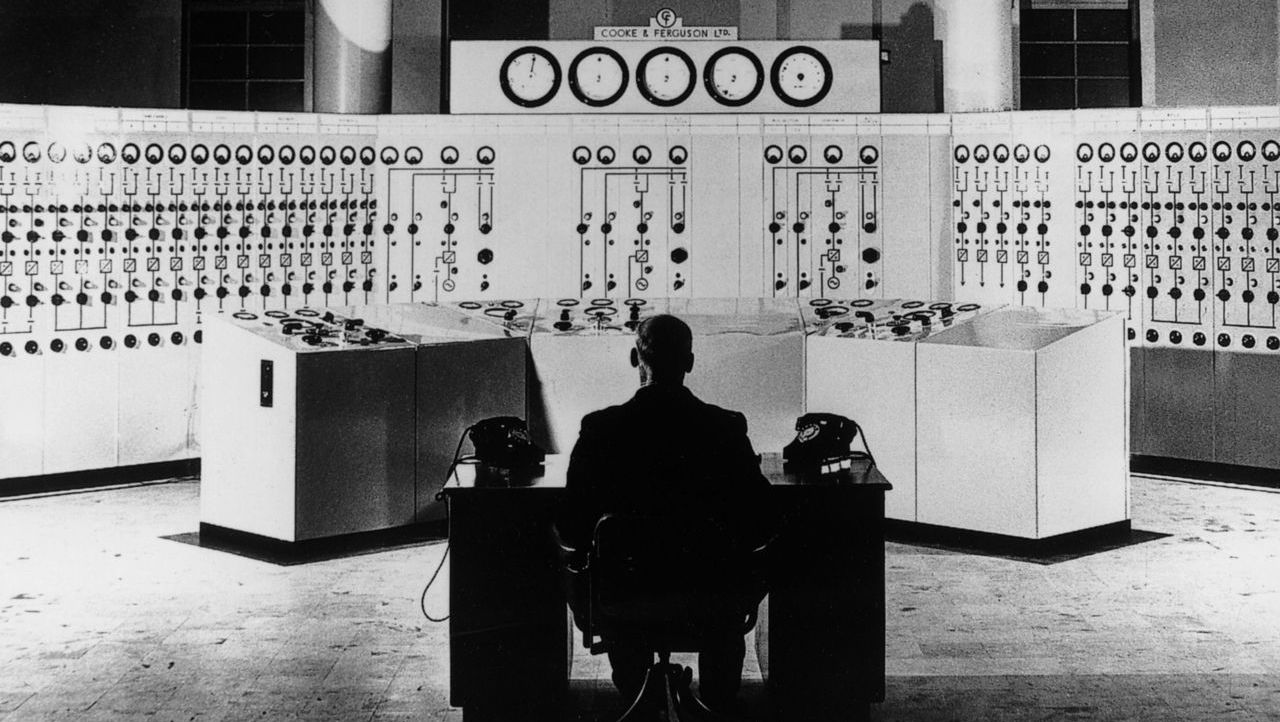We flock to concert venues and sports arenas to watch something magical happen on stage or on the field. But, the real magic is in the stands. It’s astounding that 40,000+ people pay top dollar for this massive shared experience – strangers simultaneously spending their time in search of similar rewards (joy, thrill, awe, etc…).
There are a plethora of massively shared experiences that happen every day in the physical world: graduation ceremonies, fundraisers, movie theatre showings, concerts, sports, marathons, etc…
But, where are the massively shared experiences of the digital world?
Massively Shared Experiences
Massively shared experiences in the digital realm are extremely rare. This is because most digital experiences aren’t limited to a timeframe and also exist on platforms that seclude each individual from the group.
Ten million people may see the same tweet from Kim Kardashian, but they all experience it on their own time when they choose to be on Twitter. One hundred thousand people may stream the new episode of The Crown. But, they have no way of feeling the energy of the thousands of other people experiencing the same episode.
Yes, primetime TV shows such as The Bachelor and The Amazing Race require you to “tune-in” at a certain time to enjoy them, and millions of people simultaneously do so. But, there’s no unity in the shared experience. You cannot feel the emotional energy of the crowd.
A big part of a shared experience is in connecting with the rest of the audience. There’s an indescribable feeling when you sigh alongside 30,000 fans after a dropped touchdown pass. Or the crowd’s uplifting excitement after hearing the first note of a band’s hit song.
When I was a live DJ, I used to read the collective energy of the crowd to figure out which music was fit for the environment. You cannot put into words what it feels like to be tapped into the energy of an entire crowd, but that’s the power of a massive shared experience.
This is something that TV simply can’t replicate because there’s no way of engaging with the thousands of others that are sharing that moment. However, this doesn’t make the digital world a lost cause for massively shared experiences.
First of its Kind
Perhaps the first widespread example was the release of the Pokemon Go app in 2016, which garnered over 25 million downloads in the first week and 750 million downloads to date. What made this location-based game so unique is that it got people off their couches (the usual place to play games) and into their environments to catch wild Pokemon with their cell phones.
By strategically releasing rare Pokemon at certain times and locations, huge masses of players gathered around “points-of-interest”, thus getting involved in a massive shared experience. For instance, when a Charizard appeared in Long Beach, this happened. And when a Snorlax appeared in Taiwan, this happened.
We can’t quite consider Pokemon Go groups as fully digital shared experiences, considering the groups formed in the physical world. However, they were a step in the right direction.
Trivia with a Crowd
A purely digital environment that is providing massively shared experiences is the HQ app. HQ is a live trivia game show with cash prizes. Every day, at 9 pm EDT and weekdays at 3 pm EDT, contestants must answer 12 questions correctly to split a cash prize. Since it’s “live”, HQ requires contestants to “tune-in” to participate, thus fulfilling the simultaneous requirement of a shared experience.
During Super Bowl Sunday’s halftime, while most people were preoccupied with commercials, snacks, and bathroom breaks, over 1.9 million people tuned-in to the HQ app for a chance at $20,000.
At first glance, HQ may seem like a classic quiz game where it’s you against the question. But, it’s really a game of “you against the crowd”, since HQ displays how many people participate. Half the fun is watching the number of contestants dwindle the further you go.
It’s an exhilarating twist to the game that also connects you to the rest of the audience. You are playing the questions just as much as the crowd. Especially when you get a question right and watch 100k people get kicked out for the wrong answer. This is what makes it a simultaneous shared experience. And HQ is the first of its digital kind.
Similar to how Uber spurred the entire sharing economy, HQ is birthing an entire industry known as Massive Simultaneous Online Social Communities (MSOCs).
Massive Simultaneous Online Social Communities
When compared to the practically infinite number of physical hobbies, the digital world seems to be pretty bland. Streaming video, researching information, playing games, and blogging are among the very limited number of digital hobbies. But, MSOCs are going to change this stigma by encouraging the creation of interactive social communities revolved around hobbies.
Digital clubs for improv, pottery, woodworking, yoga, photography, quilting, drama, drawing, cooking, collecting, card playing are all in the realm of possibility for MSOCs.
Currently, hardware limits these potential digital hobbies. It’s kind of hard to have an interactive woodworking club through smartphones and computers. But, AR and VR hardware are going to be the platforms where MSOC experiences thrive.
In particular, Intel’s AR smart glasses, Vaunt, could be used to foster a massive online cooking community. Vaunt glasses project a non-invasive display onto your retina, which could allow chefs to engage with one another in remote kitchens – just like a cooking class.
As for VR, well it doesn’t take much imagination to realize how MSOCs could exist in these virtual worlds. I know the HQ app could benefit from a VR platform so contestants could engage with each other’s digital avatars. Perhaps digital trap doors open for contestants that guess the wrong answer. Another example of MSOCs in VR is seen in the upcoming major motion picture, Ready, Player One.
Yes, AR and VR have been pretty disappointing technologies over the past few years when compared to the hype they received. However, they’ve just been missing the software that gets people interested.
HQ isn’t a fad. It’s an early look into MSOCs. And one of the next half-trillion-dollar companies (Facebook, Amazon, Apple, Google) is going to emerge within this MSOC era.
Affecting Connectedness
Undoubtedly, MSOCs bring a refreshing twist to hobbies. However, the question persists whether or not MSOCs will actually be a positive social transition. Yes, they remove the friction of escaping to a hobby. But, are digitally shared experiences as powerful as physical? Are they as fulfilling?
We engage in group experiences for the satisfaction and comradery of being a part of something bigger than ourselves. The universe can feel both massive and tiny when we are alone. Yet, shared experiences dilute this loneliness and make us feel connected.
For instance, running 26.2 miles at the gym on any given Tuesday will never compare to finishing alongside thousands of others at the Boston Marathon.
So, how will the rise of digital shared experiences affect our connectedness?
I don’t know whether this social transition will be positive or negative for our culture. But, I do know that we must never lose our desire to gather together. Because in groups we remind ourselves that we aren’t alone in this. And that’s something we cannot forget.
Thanks for tuning in to this week’s Quick Theories. Shoot me an email with what MSOCs you’d like to join someday.


